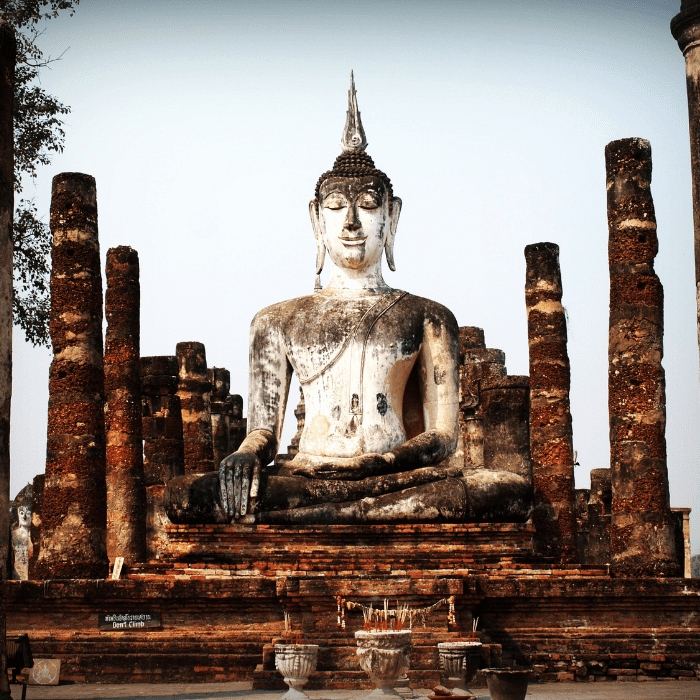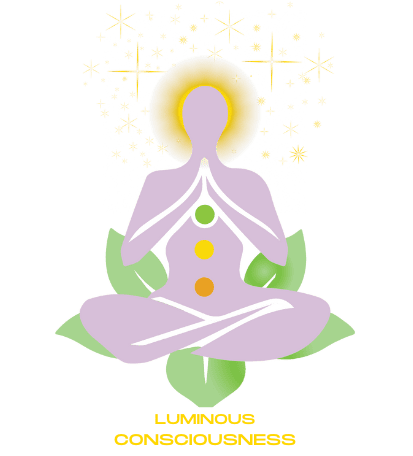Here’s a little transparency: Our website contains affiliate links. This means we may receive a small commission if you click and make a purchase. Don’t worry—there’s no extra cost to you. It’s a simple way you can support our mission to bring you quality content. Learn more at the Affiliate Disclosure page.

Introduction
Let’s create a fascinating dialogue between past and present insights. Throughout human history, consciousness has remained a subject of mystery and intrigue. It’s evident that civilizations thousands of years ago were not just about survival and conquest; they were deeply invested in understanding the mind and its workings. This blog will explore how ancient wisdom and modern science intersect in exploring consciousness, highlighting fundamental theories, practices, and insights from both perspectives.
Later, I’ll discuss Dr. Tony Nader’s theory on consciousness, which bridges ancient wisdom and modern science. But first, let’s examine how ancient cultures viewed consciousness.
Ancient Wisdom on Consciousness
In ancient times, the profound disciplines of philosophy, spirituality, and metaphysics delved deep into the nature of consciousness. Civilizations across the globe grappled with understanding the mind, the self, and the universe, laying the foundation for many of today’s theories.
- In Ancient India, the Vedas and Upanishads dissected consciousness with precision. These texts delved deeply into the nature of the self, identifying the concepts of Atman (the soul) and Brahman (the ultimate reality). The Vedic sages believed consciousness was the fundamental reality underlying all existence.
- In Ancient China, Daoist philosophy saw consciousness as a flow of universal energy or Qi that permeates the cosmos. Daoist teachings emphasize harmony between the individual and the universe, suggesting that consciousness is part of the larger, interconnected whole.
- The Ancient Greeks, primarily through philosophers like Plato and Aristotle, were deeply engaged with the nature of thought and self-awareness. Plato’s theory of forms posited that the material world is a shadow of a higher realm of ideas and consciousness, a concept still echoed in modern philosophical debates.
This isn’t just about historical curiosity. It’s about recognizing our ancestors’ profound thoughts that align well with today’s cutting-edge research. Ancient civilizations like the Buddhists viewed consciousness as an interconnected web, a concept that can enlighten us about the unity of all things. Egyptian mythology spoke of the soul or Ka as an essential, eternal aspect of human existence. Indigenous cultures worldwide have long viewed the universe as a living, breathing cosmos, where consciousness extends beyond humans to the earth, animals, and even the stars.
These ancient views offer us rich, varied lenses through which we can examine the concept of consciousness today. What can we learn from these ancient beliefs, and how can they actively inform and engage in current scientific inquiry?

Modern Science and Consciousness
Fast forward to today, and consciousness is a hot topic in many scientific fields, from neuroscience to quantum mechanics. Modern science seeks to understand consciousness from a more empirical and materialistic viewpoint, often focusing on brain functions and neurological processes.
- Neuroscience has made significant strides in uncovering the neural correlates of consciousness (NCC), the brain activities corresponding to conscious experience. By studying brainwaves and neural networks, scientists can now observe how different states of consciousness—such as sleep, waking, and meditative states—affect brain activity.
- Quantum Mechanics also offers fascinating theories on consciousness. Some, like Roger Penrose and Stuart Hameroff’s Orch-OR theory, propose that consciousness might be tied to quantum processes occurring at a fundamental level of the universe. This aligns intriguingly with ancient ideas of consciousness as a universal force.
- Psychology and Cognitive Science have contributed extensively to understanding consciousness through frameworks such as Freud’s conscious and unconscious mind and Jung’s collective unconscious. Today, cognitive neuroscience explores how mental processes give rise to conscious experiences.
Although modern science often focuses on consciousness’s biological and material aspects, it is beginning to overlap with the metaphysical ideas presented in ancient wisdom, suggesting that the two approaches might not be as different as we once thought.

Common Ground Between Ancient Wisdom and Modern Science
Despite their apparent differences, there are several key areas where ancient wisdom and modern science align in their exploration of consciousness:
- The Nature of Consciousness: Ancient teachings often describe consciousness as a universal force, a perspective that resonates with modern scientific explorations in quantum theory. The idea that consciousness is fundamental to the universe—like Brahman in the Vedic tradition—parallels the contemporary hypothesis that consciousness could be a fundamental property of matter.
- Mind-Body Connection: For thousands of years, practices like yoga and meditation have been used to alter and enhance states of consciousness. Modern science has confirmed many of these ancient practices’ benefits, such as improving mental clarity and reducing stress. Techniques like breathwork and pranayama regulate the nervous system and have measurable effects on brain function.
- Altered States of Consciousness: Ancient rituals involving meditation, chanting, and even using natural substances were designed to explore altered states of consciousness. Today, neuroscience studies altered states using tools like neurofeedback and research into psychedelics for therapeutic use, confirming the transformative potential these states hold for personal growth and healing.
Tony Nader’s Theory on Consciousness
Dr. Tony Nader, a renowned Vedic scholar and neuroscientist, offers a unique perspective that directly bridges ancient wisdom with modern science. His theory is rooted in the Vedic tradition but is supported by contemporary scientific research.
- Consciousness as the Basis of Reality: Dr. Nader posits that consciousness is the fundamental basis of all reality, echoing ancient Vedic teachings. He suggests that everything in the universe arises from this underlying consciousness, aligning this ancient view with the unified field theory of quantum mechanics.
- Unified Field of Consciousness: He describes consciousness as a unified field transcending all forms of existence. This field is the ground state of all matter and energy; every individual consciousness is part of this vast universal field. This concept resonates with ancient Indian and Daoist philosophies of a single, interconnected force flowing through everything.
- Human Consciousness and the Brain: According to Dr. Nader, while consciousness is universal, the human brain acts as a receiver that allows us to experience this cosmic field. He likens the brain to an instrument that transmits consciousness rather than being its origin, challenging the purely materialistic views of neuroscience.
- Levels of Consciousness: Dr. Nader identifies multiple levels of consciousness, ranging from waking and dreaming states to more advanced levels such as transcendental, cosmic, and unity consciousness. These stages reflect varying degrees of awareness and integration with the unified field of consciousness, echoing ancient texts that describe spiritual awakening and enlightenment.
- Transcendental Meditation (TM): A cornerstone of Dr. Nader’s work is the practice of TM, which he advocates as a method to access higher states of consciousness. TM is a tool for directly experiencing the unified field, offering practical benefits such as mental clarity, emotional balance, and well-being.
- Scientific and Vedic Integration: Dr. Nader’s approach integrates modern neuroscience with ancient Vedic knowledge, using scientific methods to validate concepts described in spiritual texts for millennia. This holistic view suggests that consciousness is not just a byproduct of brain function but the very fabric of reality.

Practical Implications and Final Thoughts
Dr. Tony Nader’s theory offers a profound understanding of consciousness and practical implications for personal health, societal harmony, and global peace. By accessing higher states of consciousness, individuals can unlock their full potential and contribute to a more peaceful and conscious world.
If you want to appreciate this topic’s complexity, focus on the underlying messages and the metaphysical questions these ancient cultures grappled with—questions that we, with all our technological prowess, are still pondering today. Ancient wisdom and modern science offer valuable insights, and by bridging these two perspectives, we can gain a more comprehensive understanding of consciousness.
Let’s continue to explore more and embrace the opportunity to expand our understanding of consciousness by considering viewpoints that have withstood the test of time.
Suppose you’re intrigued by the concepts of consciousness we’ve explored here and want to explore them further. In that case, I highly recommend Dr. Tony Nader’s groundbreaking book, “One Unbounded Ocean of Consciousness: Simple Answers to the Big Questions in Life.”
In this book, Dr. Nader expands on the idea that “consciousness is all there is” and offers an enlightening journey through the nature of existence itself. He seamlessly bridges ancient wisdom with cutting-edge science, providing a comprehensive understanding of consciousness that is both thought-provoking and deeply transformative.
Whether you’re a seeker of spiritual wisdom or someone fascinated by the latest scientific discoveries, this book will take your understanding of consciousness to the next level. Dr. Nader’s insights will empower you to unlock your potential, live with greater awareness, and connect more profoundly with the world around you.
Take the chance to explore consciousness in its most expansive form. Get your copy of “One Unbounded Ocean of Consciousness” today and embark on a life-changing journey!
Take Something With You before You Leave
If you’ve made it this far, I want to express my gratitude for taking the time to read. As a token of appreciation for your interest, I offer you three complimentary gifts. If my story has inspired you, you can delve deeper here.
Whether you’re beginning your journey of self-discovery, aiming to broaden your consciousness, or seeking harmony between your busy life and a deeper connection, feel free to choose the gifts that resonate with you. After all, it’s on the house.





Your piece on the dialogue between past and present insights into consciousness is both intriguing and enlightening.
Your exploration of consciousness through the lens of ancient wisdom and modern science is thought-provoking and well-articulated. The way you bridge historical perspectives with contemporary theories offers a rich, multidimensional view of a complex topic.
Your article is a rich tapestry of insights that effectively bridges ancient wisdom and modern science. By exploring the profound thoughts of our ancestors and integrating them with contemporary theories, you offer a holistic view of consciousness that is both timeless and timely.
The opening sets the stage effectively, drawing readers into the fascinating dialogue between past and present insights on consciousness. You do an excellent job of illustrating how ancient civilizations like those in India, China, and Greece were deeply invested in understanding consciousness. This historical context underscores the continuity and evolution of thought on this subject.
By highlighting Dr. Tony Nader’s theory, you provide a compelling example of how ancient wisdom can be integrated with modern scientific inquiry. This synthesis is both insightful and inspiring. The mention of Transcendental Meditation (TM) and its benefits offers readers a tangible method to explore higher states of consciousness, making the topic more relatable and actionable.
Discussing the implications of Dr. Nader’s theory for contemporary society, including potential applications in areas like mental health, education, and conflict resolution, could deepen the relevance of the topic. Including some critical perspectives or debates within the scientific community regarding the integration of ancient wisdom and modern science could provide a more balanced view.
Overall, your piece is a valuable contribution to the ongoing dialogue about consciousness. Keep up the excellent work in exploring and sharing these profound topics!
Thanks for the motivation. I am glad you like the content and I am also grateful to you for sharing your ideas and other perspectives on this intricate subject.